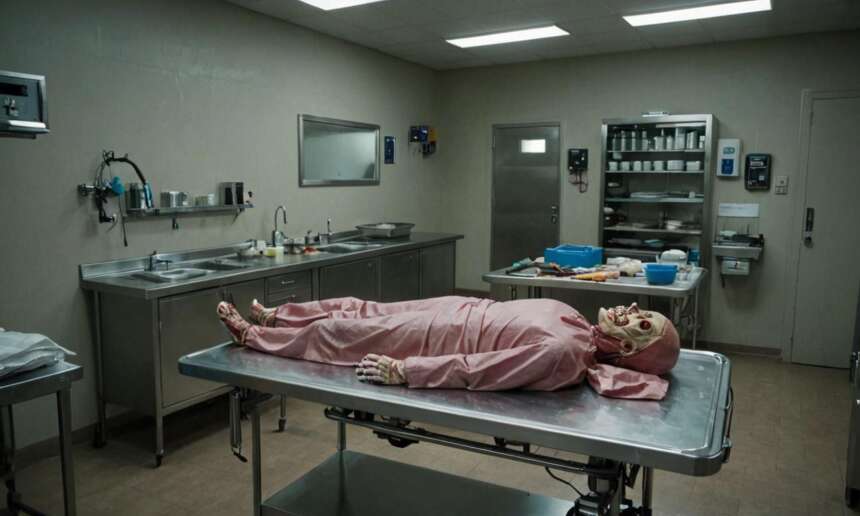Curiosity often surrounds the personnel who work in a morgue, a place where the deceased are examined, identified, and prepared for burial or cremation. The individuals employed in such facilities play critical roles in forensic investigations, pathology, and mortuary services.
Pathologists
At the forefront of morgue operations are pathologists. These medical doctors specialize in the diagnosis and study of disease through the examination of tissue samples, organs, and bodily fluids. In a morgue setting, pathologists conduct autopsies to determine the cause of death and provide valuable insights for legal and medical purposes.
Mortuary Technicians
Mortuary technicians, also known as morticians or undertakers, are responsible for various tasks related to the handling and preparation of deceased individuals. They perform tasks such as embalming, dressing, and casketing the deceased, ensuring that they are presented respectfully for funeral services.
Forensic Scientists
Forensic scientists work closely with pathologists to analyze evidence collected from crime scenes and deceased individuals. Their expertise in DNA analysis, toxicology, and trace evidence examination aids in criminal investigations and the determination of cause of death in suspicious cases.
Morgue Attendants
Morgue attendants provide essential support services within the facility. They assist pathologists during autopsies, handle the movement and storage of bodies, and maintain cleanliness and organization in the morgue environment. Their role is crucial in ensuring the smooth operation of daily activities.
Administrative Staff
Behind the scenes, administrative staff manage the logistical and paperwork aspects of morgue operations. They handle scheduling, record-keeping, and communication with families and other agencies involved in the process of handling the deceased.
Law Enforcement Personnel
In cases involving criminal investigations, law enforcement personnel such as detectives and crime scene investigators may collaborate closely with morgue staff. Their presence ensures the proper documentation and preservation of evidence related to the deceased.
Support Services
Additionally, morgues may rely on support services such as cleaners, security personnel, and maintenance workers to maintain the facility’s functionality and hygiene standards.
Educational and Research Personnel
Some morgues may also have educational and research components, employing professors, researchers, and students who study various aspects of death, pathology, and forensic science.
Overall, the individuals who work in a morgue come from diverse backgrounds and disciplines, united in their dedication to upholding standards of professionalism, respect, and accuracy in handling the deceased and supporting the needs of families and law enforcement agencies.
Frequently Asked Questions
Here are some common questions about the personnel who work in a morgue:
| Question | Answer |
|---|---|
| What qualifications are required to become a pathologist? | Pathologists typically need to complete medical school, residency training in pathology, and obtain board certification. They also need strong analytical skills and attention to detail. |
| What is the role of mortuary technicians? | Mortuary technicians handle tasks such as embalming, dressing, and preparing deceased individuals for burial or cremation. They ensure that the deceased are presented respectfully for funeral services. |
| Do morgue attendants need medical training? | While medical training is not always required for morgue attendants, they typically receive on-the-job training to handle tasks such as assisting during autopsies, moving and storing bodies, and maintaining cleanliness in the morgue. |
| What role do forensic scientists play in morgue operations? | Forensic scientists analyze evidence collected from crime scenes and deceased individuals to aid in criminal investigations and determine the cause of death in suspicious cases. They collaborate closely with pathologists and law enforcement personnel. |
| Are there opportunities for educational and research work in morgues? | Some morgues have educational and research components, employing professors, researchers, and students who study various aspects of death, pathology, and forensic science. |
Training and Qualifications
Individuals working in a morgue often require specialized training and qualifications:
- Pathologists typically require medical degrees, residency training in pathology, and board certification.
- Mortuary technicians may undergo formal training programs in mortuary science or gain experience through apprenticeships.
- Forensic scientists usually hold degrees in forensic science, biology, chemistry, or related fields, along with specialized training in forensic techniques.
Emotional and Psychological Support
Working in a morgue environment can be emotionally challenging. Many facilities provide support services or counseling to help personnel cope with the psychological demands of their work.




